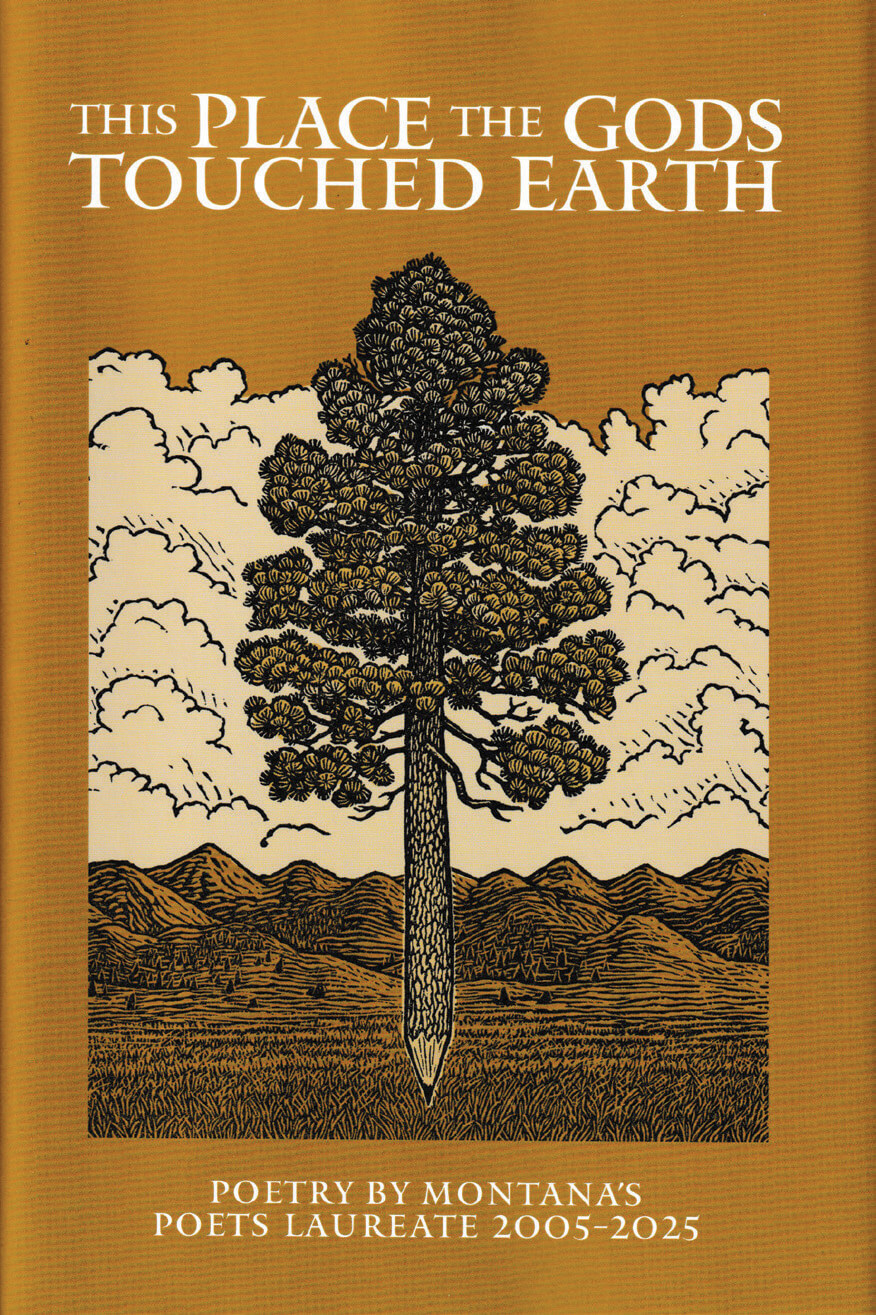
29 May Books: Reading the West
This Place the Gods Touched Earth (Montana Arts Council and Montana Historical Society Press, $19.95) brings together a strong and vibrant sample of work by all 11 of Montana’s past and current poets laureate, since the honor was established in 2005 by the Montana State Legislature. The poets, in order of their term, are Sandra Alcosser, Greg Pape, Henry Real Bird, Sheryl Noethe, Tami Haaland, Michael Earl Craig, Lowell Jaeger, co-laureates Melissa Kwasny and M.L. Smoker, Mark Gibbons, and Chris La Tray.
The book’s title, from a line by Jim Harrison, becomes an apt description of Montana as seen through the eyes and felt through the hearts of these poets. Despite the poets’ diverse styles, voices, genders, backgrounds, and ethnicities, the poems in this collection are communally rooted to the land in a way that one seldom finds outside of our big, open Western skies. In “Deer on Crazy Creek,” Tami Haaland, who served as laureate from 2013 to 2015, writes, “Do you understand what calls / and calls again from an aspen horizon?” And though she is speaking to a deer, she is also speaking to us — reading her poem and walking her “long trail / with golden butterflies on sage.”
The poems also reveal that this land we are rooted to, as well as its people, have suffered much, yet persist. Henry Real Bird’s “Mass in Crow,” with its “open pit mining,” “barbwire in [Buffalo’s] stomach,” and birds using “shredded threads of nylon tarps / Instead of horse hair for nests” is no romanticized version of the West. However, as he is able to remind us, “The wolf dog barks and growls at the dark, / polyphonic politician mumbles riddles, / But we dry the wild turnips and wild carrots / To walk toward another winter. / … / As a better moon is rising.”
The editors, Krys Holmes and Eric Heidle, do a fine job of presenting these works as not only an introduction to some wonderful Montana poets but a showcase of how contemporary poetry is thriving within a state known for an almost legendary literary legacy. Indeed, Holmes’ preface, which opens the collection, reads as visually and musically rich as the poems it precedes. Page for page, this anthology is a necessary addition to any collection of Western poetry.
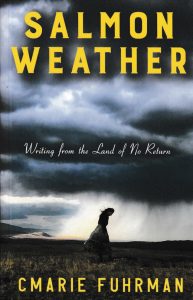
A good essay is like a conversation had with a wise and deep-thinking friend while sitting at a quiet campfire, floating a lazy river, or sharing drinks at an almost empty bar. The words weave a spell that lingers. CMarie Fuhrman’s Salmon Weather: Writing from the Land of No Return (Columbus State University Press, $18.95) gathers essay after essay that fits this description like a favorite hat fits your head.
The short pieces collected here are written with a nearly frightening candidness and vulnerability. Fuhrman shares stories of loss — whether that of her late husband, a trapped and suffering coyote she had to kill, or an entire river’s ecosystem ruined by the dam that paradoxically brings power to her own home. Whatever the pain and whatever her place within it, Fuhrman never shies away, never lies to her reader. Yet, it is with an equal level of truth that she shares the power and beauty of the natural world to restore, teach, inspire, and renew. Ultimately, these are essays of regeneration and veneration. They are secular hymns to a sacred Earth.
Furhman’s words rise from the page as river water rises during spring runoff, allowing passage for her beloved salmon. These finely honed narratives are clearly written by someone who thinks in poetry; someone who breathes with rivers and flies with ravens. This is a book to teach us to slow down, breathe fully, and take a closer look at the world around us — a world that needs our grace and defense just as much as we need its wisdom and healing.
Of Note
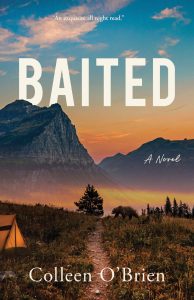
Glacier National Park becomes the most compelling character in Colleen O’Brien’s well-paced novel, Baited (Unbridled Books, $20), though its human characters are not far behind. The story centers around a missing trail-crew member in Glacier’s backcountry. Signs point to a grizzly, but in this darkly comic thriller, nothing can be taken for granted, and no one is beyond suspicion. Yet it’s the author’s ability to bring the breathtaking beauty of Glacier into full focus that makes this a novel to savor. O’Brien’s love for and deep understanding of this magical place is evident on every page.

A life well-lived, told through the framework of a series of well-loved vehicles, motors across the pages of Fred Haefele’s The Essential Book of Pickup Trucks (University of Nebraska Press, $21.95). From “Jimi,” a ’68 GMC, to “Rufus,” an ’06 Tundra — with several other trucks in between — Haefele recounts his love affair with pickups while revisiting the wild ride of a life they were part of, taking him from Flint, Michigan to the Northeast, Colorado, Northern California, and, finally, Missoula, Montana. Along the way, he falls in and out of love, struggles to reconcile with disapproving parents, works dangerous jobs, and enjoys equally dangerous hobbies. This rollicking memoir has me missing my own past vehicles (Gus, Hero, Clyde, et al.), but most of all, it has me glad to be able to ride shotgun with Haefele as he spins a tale as compelling as the open road.
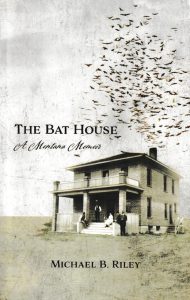
Michael B. Riley has bats in the belfry. Actually, they seem to be everywhere in the 1917 brick house on the Yellowstone River of eastern Montana, which he bought as the mother of all “fixer-uppers.” He brings his adventures to the page with The Bat House: A Montana Memoir (WordsWorth Publishing, $20). His unending battle with bats is paralleled with other battles in his life — from the personal to the professional, the spiritual to the physical — but through them all, he tells his story with joy, humor, and a wry acceptance of the vicissitudes of life, even when that life contains far more guano than anyone should have to endure.
Marc Beaudin is a poet, theater artist, and bookseller based in Livingston, Montana. He is the author of These Creatures of a Day, Life List: Poems, and Vagabond Song: Neo-Haibun from the Peregrine Journals, and his work is widely anthologized in publications dedicated to environmental and social justice.



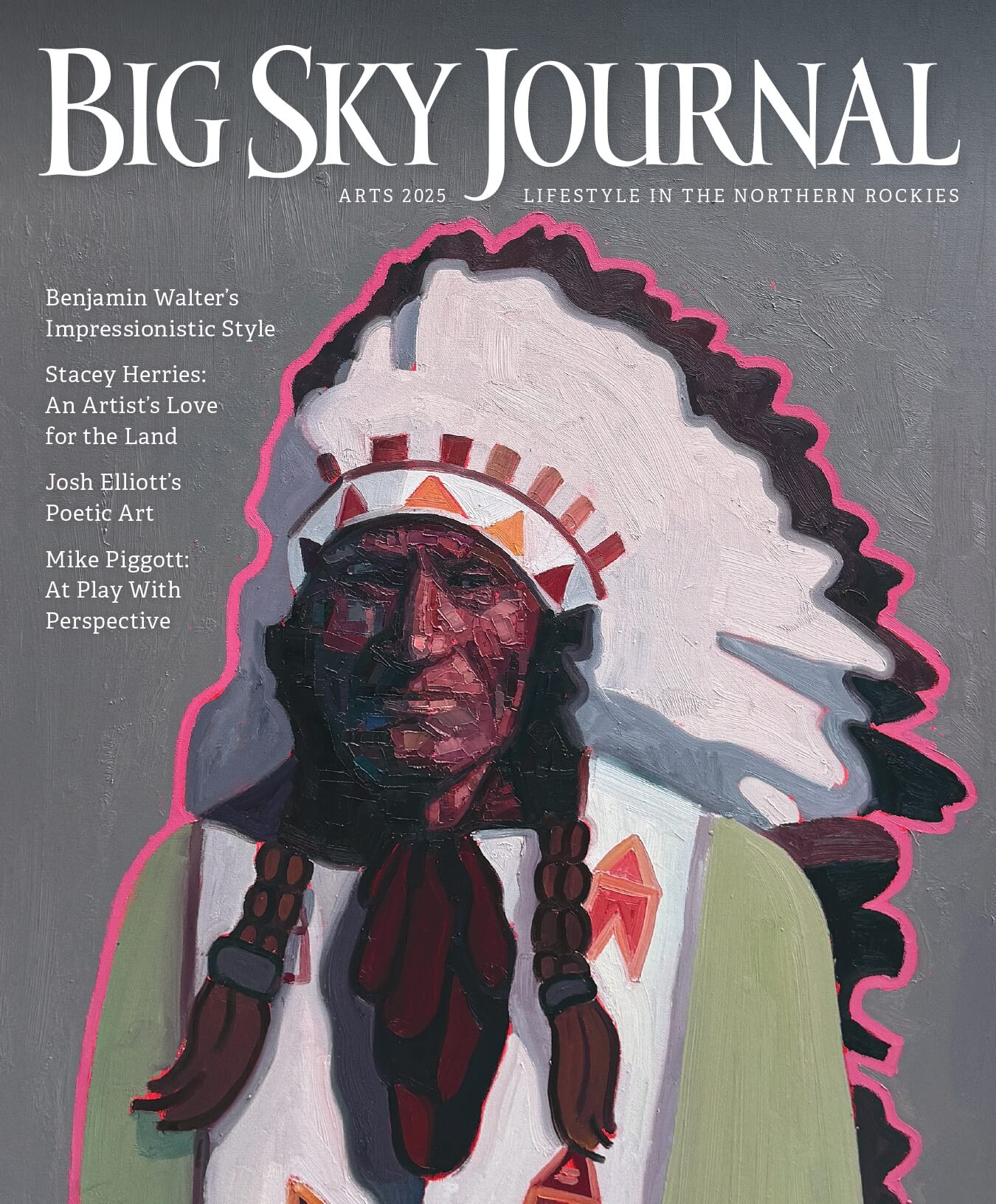
No Comments